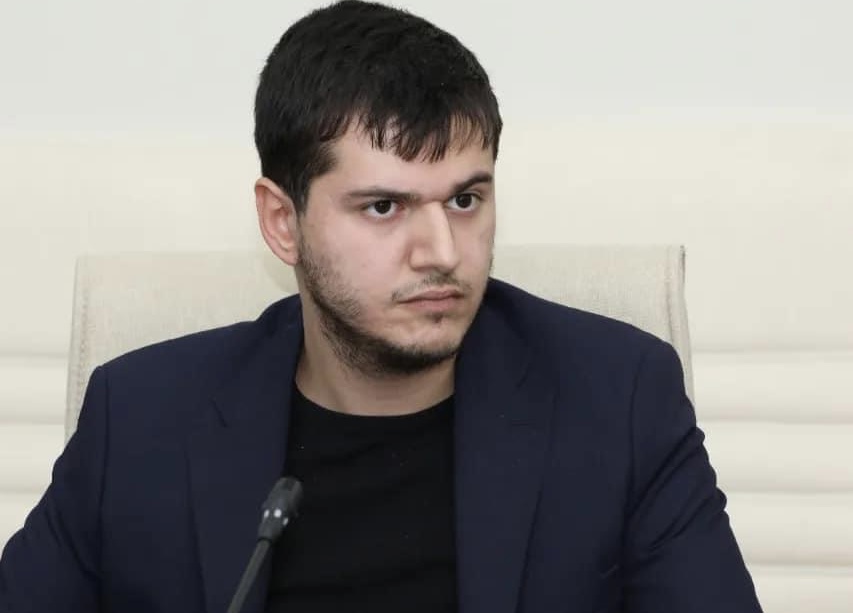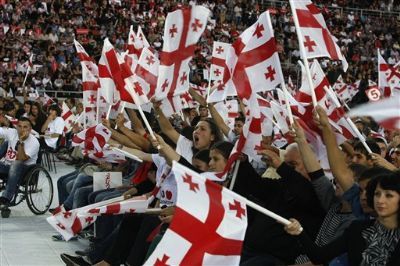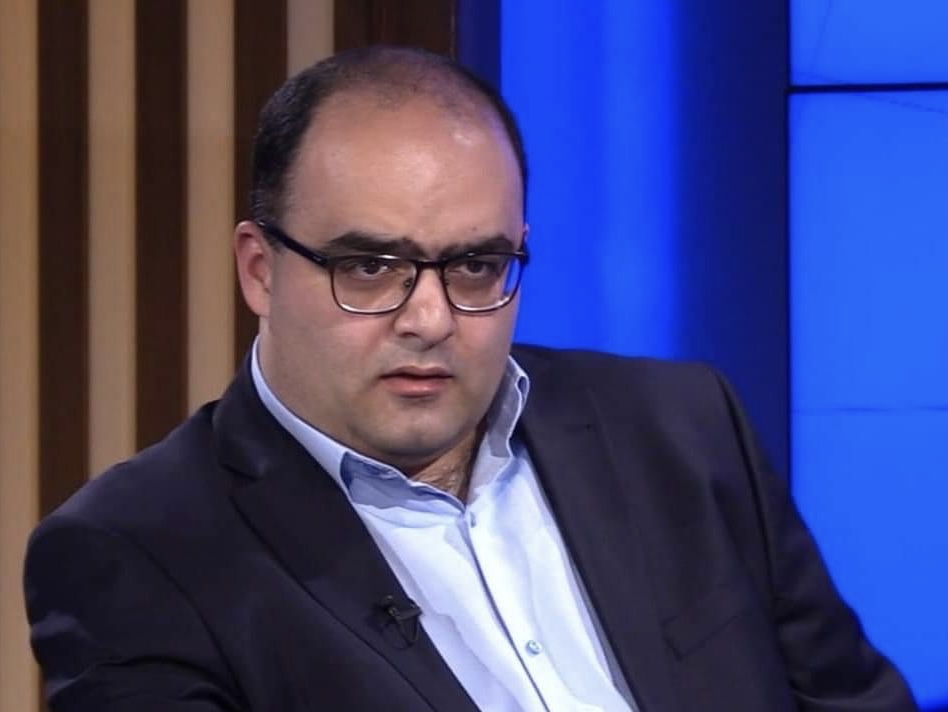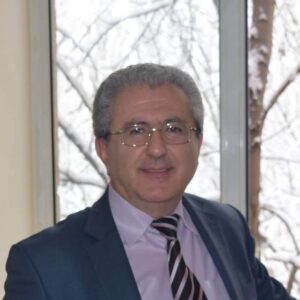Does Mikheil Saakashvili Have a Political Future in Georgia?
The opposition United National Movement (UNM) came in distant second in the Georgian parliamentary elections that took place on October 8 (see EDM, October 13). The party of former president Mikheil Saakashvili received only 27.11 percent of the vote for the party list. And it is unlikely to pick up more than a handful of seats on October 30, in the second round of voting in those single-member districts where no candidate won an absolute majority during the first round. So while the ruling Georgian Dream–Democratic Georgia (GDDG) looks likely to achieve a constitutional majority in the next legislature, UNM could end up winning only 27–29 parliamentary seats—even fewer than the 44 seats it won in 2012 (Cec.gov.ge., Parliament.ge, accessed October 26).
Saakashvili has remained the leader of Georgia’s main opposition party despite his forced departure from the country after his presidential term expired in November 2013. The General Prosecutor Office has launched four criminal investigations against him, accusing the former head of state of overstepping his authority and embezzling government funds (Kommersant, November 27, 2014). In May 2015, Saakashvili was nominated governor of Ukraine’s Odesa province and he accepted Ukrainian citizenship. Legally, he had to give up his Georgian citizenship; the current president of Georgia, Giorgi Margvelashvili, refused to grant an exception for him in this matter (Lenta.ru, December 4, 2015).
Despite remaining abroad, in Ukraine, Saakashvili nonetheless actively participated in UNM’s electoral campaign and remained the most recognizable face of the opposition. He publicly expressed his thoughts on a future government and proposed the current chief of the Ukrainian National Police, Khatia Dekanoidze, to become interior minister of Georgia (Kommersant, October 3). And while addressing a rally in support of UNM via videoconference, on October 5, he pledged to “return to Georgia immediately after UNM’s victory” (Kommersant, October 6). However, a day before voting day, Saakashvili unexpectedly told Ukrainian television that he would not be returning to Georgia “whatever the outcome of the elections” (Interpressnews.ge, October 8).
After the disappointing election results were announced, UNM leaders criticized Saakashvili and blamed him for their party’s defeat at the polls. “Instead of campaigning in a constructive way, UNM’s electoral slogans were [drowned out] by questions of whether Saakashvili would return to Georgia immediately after the elections,” complained Shota Utiashvili, a former head of the Department for Analysis at the Georgian Ministry of Interior. He further argued that Saakashvili’s statements about “the army and police being on his side” frightened voters during the campaign (Interpressnews.ge, October 10).
The head of the opposition TV station Tabula, Tamara Chergoleishvili, was even more blunt. She called all of Saakashvili’s electoral promises about his imminent return to Georgia “fake” and reprimanded the UNM leader for making such statements, which, she argued, prevented the opposition from capturing more votes in the elections. “Saakashvili is trying to suggest that UNM is nothing without him, and he gives us orders from Odesa. Let him return and prove that we are nothing without him,” Chergoleishvili indignantly stated (Ipress, October 11).
After the first round of voting, Saakashvili called on his party to boycott the second round of elections and refuse to participate in the parliament’s work to protest the “falsification of the voting on October 8” (Interpressnews.ge, October 10). But the UNM’s ruling council disagreed with its informal leader. The vast majority of the party heads supported “fighting on” (Kvirispalitra, October 12). Only a few members of the opposition party’s council backed Saakashvili’s position, including lawmaker Nugzar Tsiklauri. “This parliament, where one party will have the majority, looks more like the ‘parliament’ of Turkmenistan, where there is no democracy whatsoever” Tsiklauri said (Interpressnews.ge, October 11).
Tensions in Georgia’s largest opposition party further escalated when Mikheil Saakashvili’s wife, Sandra Roelofs, who is second on the UNM’s party list, refused to participate in the second round of elections in Zugdidi district. She pointedly referred to the “senselessness of continuing the campaign under the conditions of total falsification by the authorities” (Sputnik-georgia.com, October 23). But the party leadership openly criticized Roelofs’ move, saying that the former first lady’s decision “harmed the opposition” (Tabula, October 23). Saakashvili stated that his wife made her decision to withdraw from the elections “independently,” and Roelofs herself rejected claims that her withdrawal was motived by her husband (Rustavi 2, October 23).
The infighting in the party does not seem likely to avert the decision of the vast majority of the elected UNM members to continue working in the Georgian parliament and oppose the ruling party there. However, the conflict inside UNM does cast doubt on Saakashvili’s future in the party and Georgian politics in general.
Can UNM survive without a charismatic leader like Mikheil Saakashvili? Some experts believe yes. “UNM must signal to voters who support reforms and a pro-Western course for the country that the party is prepared to appropriate all the positive aspects of Mikheil Saakashvili’s tenure and reject all the negative sides of his legacy. Thus, UNM should transform itself into a party in which Saakashvili might be an ‘honorary chairman’ or an ‘important founding figure,’ but not an active leader- who makes decisions,” Nika Imnaishvili, an expert for the news-analysis agency, GHN, told this author. According to Imnaishvili, many Georgian voters support the Westernization of the country as well as Georgia’s accession to the North Atlantic Treaty Organization (NATO) and the European Union; but they fear that Saakashvili’s personality and his governance style “might lead the country to a civil war or another war with Russia.” The expert asserted that “this category of Georgian voters is rather large. They do not like [Georgian Dream founder] billionaire [Bidzina] Ivanishvili and his informal stay in power. They do not like Georgian Dream, and they are prepared to vote for UNM, but without Saakashvili being in a position of power there” (Author’s interview, October 10).
UNM did not confirm whether it was considering replacing Saakashvili as the leader of the party. “Saakashvili is a significant political figure not only on the scale of Georgian politics but also on the international scale. He is a very distinguished person. He will remain on Georgia’s political scene regardless of changing relations and various disagreements,” member of parliament David Darchiashvili told this author. Darchiashvili added that the “still quite young” Saakashvili’s formal status in the party has nothing to do with his actual influence or political weight: “Disagreements are normal. Many party members disagree with Saakashvili’s opinion, which means that he had succeeded in establishing a European party” (Author’s interview, October 10).
For now, the vast majority of UNM’s leadership apparently agrees with Darchiashvili. The next meeting of the party’s ruling council does not plan to review Saakashvili’s status or the party’s attitude toward its founder.
By: Giorgi Menabde









Yorum gönder